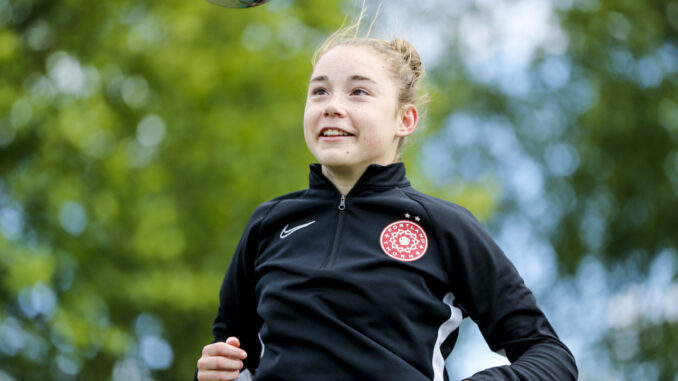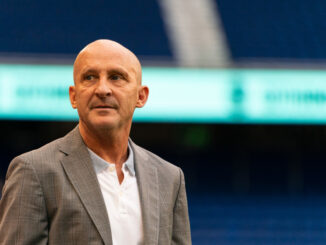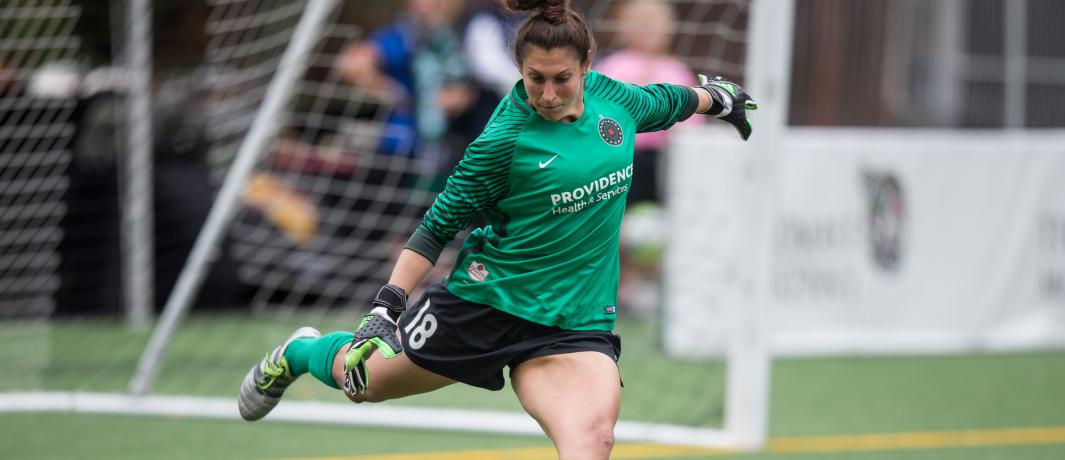
Earlier this month, the Portland Thorns made some history. When Olivia Moultrie entered in the 83rd minute during a win over Racing Louisville, the 15-year-old became the youngest player in National Women’s soccer league history.
She was only in the field because she had prevailed in a court case against the NWSL challenging the league’s 18-year-old age minimum for players. A federal judge ruled that the NWSL broke federal anti-trust law and discriminated against Moultrie by not allowing her on the field. Days after winning the case, the phenom was on the field for the Thorns and made her Providence Park debut Sunday in a 0-0 draw.
Moultrie’s opportunity to play professionally is the latest in a string of victories for young athletes this summer. NCAA athletes got a double whammy of good news when the NCAA finally allowed college athletes to benefit from their name image and likeness (NIL) and accept endorsement deals. This followed on the heels of the Supreme Court ruling that uncaps the amount of educational benefits student-athletes can receive from a school. Both of these victories have been a long time coming. For years the NCAA simply screamed “Amateurism!” buried its head in the sand, and then turned a blind eye as schools slipped payments and other benefits to big-time recruits under the table. For the first time, everyone will be on the same playing field. Student-athletes will pick which school they want to attend that offers them the best available opportunities. One might think that would be a disadvantage to smaller schools but bear in mind if you have the chance to be a big fish in a small pond when signing an endorsement deal, in smaller communities where star power can grow brighter, as opposed to being buried on the depth chart at a larger school.
Then again, players may decide that college is not the right path for them. Years ago, when the NBA instituted a requirement for players to be one year removed from their high school graduation before playing in the NBA, I thought it was a good idea. For reasons that are impossible for me to explain in hindsight, I felt that Carmelo Anthony having six months of college experience at Syracuse would help him have a better NBA career than Lebron James. I love Carmelo Anthony, but if someone tells you he has had a better career than James or that those seven months of college made a difference in their career, that person is crazy. While the age rule remains in place, more options are available than ever before for players who may not see a short college stint as the right path. Players can now sign with the G-league or play in several professional leagues for top high school players.
Those who feel college is the best choice to advance their potential future professional careers are still free to do so and have a chance to market themselves while they do. But if they don’t, they have plenty of options to maximize their potential earnings from are often all to brief professional careers. The average NFL career lasts just 2.5 years; the average NBA career is just 4.5. Some players can earn millions upon millions over the course of a long career. Still, for every one of those, there are dozens more who see their primary moneymaking occupation come to a crashing halt after just a few years. Giving them the chance to earn more money earlier just makes sense.
Bear in mind that the age limits and caps on earning money from your own name or image are not there to protect the athletes. In the NBA, team front offices could not help themselves spend high draft picks on unproven players. The NCAA wanted to make sure it kept every cent of television contracts, which is significantly easier to do when your workforce is not making any income. The NWSL could not come up with any good reason why players like Moultrie should not be allowed to play when players under 18 are allowed to play professionally overseas and in Major League Soccer in the US. Will some players wind up making poor choices with their endorsements, or who turn pro too early? Yes, of course, there will be. But with more infrastructure now in place to help them and give them more avenues and choices, they deserve the chance to prove what they can do and earn some money for their efforts.
Perhaps Olivia Moultrie will become America’s next great soccer star. If so, I hope we have the chance to watch her play in Portland for years to come. And regardless of whether she becomes that or not, she, not the NCAA or the NWSL with their arbitrary limits on what a player can do, has the right to chart her own path.




